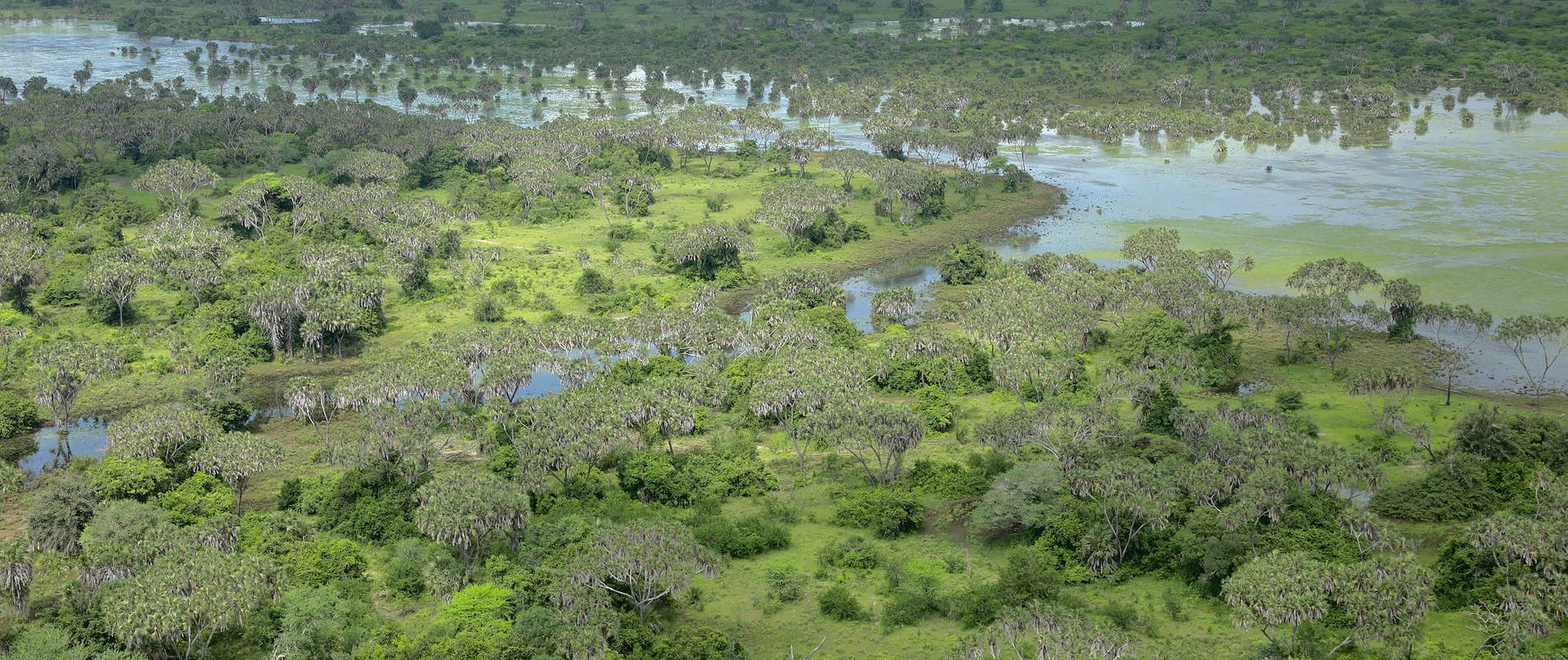The Tsavo rains largely dissipated in May in much of the Conservation Area, whilst parts of Tsavo have already begun to dry off. Many waterholes still hold water and elephants continue congregating in large herds, especially in the Southern sector of Tsavo East, where herds as large as 200 were regularly sighted from the air.
On Amu Ranch in Lamu County, one of DSWT’s Community Initiatives and a Saving Habitats project, huge amounts of rain made ground patrols by vehicle impossible, and the Aerial Unit was requested to assist with aerial patrols. In contrast to the last time we patrolled Lamu, when there were carcasses of hundreds of hippos that had died of lack of food and water due to drought, Amu was a veritable oasis. Many large water pans and seasonal lakes were not only full but also overflowing into adjacent palm forests. The whole spectacle was quite something to behold with the area absolutely saturated.
Back in Tsavo, poaching activity was generally low, attributable in part to the flooding of the Athi/Galana River, which is still impossible to cross. Several shooting blinds were also discovered on fixed wing and helicopter patrols and subsequently destroyed, however, no new blinds were sighted. This is not unusual for this time of year although poaching activity is expected to pick up in the next few months as things dry off and wildlife begins to concentrate in specific areas.

Aside from livestock incursions, the majority of illegal activities were sighted in the Chyulu Hills, consisting mainly of marijuana cultivation and logging for charcoal burning. Only one elephant carcass was discovered during the month by the DSWT helicopter. Its tusks were recovered, and the cause of death was ruled as natural.
The DSWT helicopter was also involved in two separate cases assisting KWS and communities with human-wildlife conflict challenges and was able to push unwanted elephants out of community land and back into the National Parks.

A highlight of the month was the arrival of a new Bambi bucket. This is an attachment for the Eurocopter B3 which is able to airlift water at any time and will allow the helicopter to fight fires just as they start, especially in the Chyulu Hills.
It is capable of dumping 820 litres of water onto fires and will allow us to rapidly access and fight fires in hard to reach areas. Fires were recently identified as the biggest threat to vegetation and habitat in the Chyulu Hills, and the Bambi bucket will be an essential tool to combat this threat.
